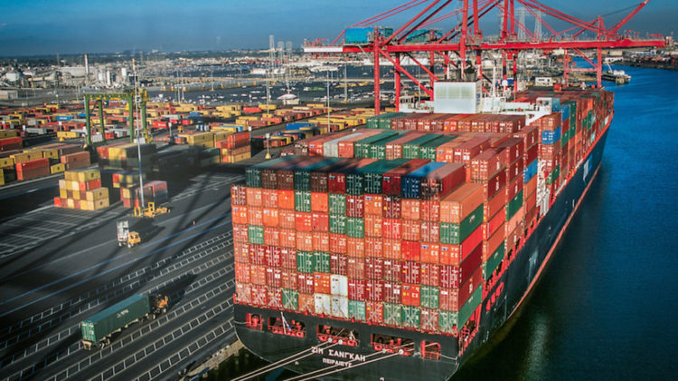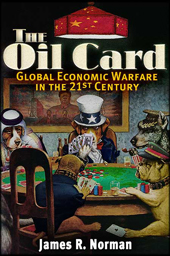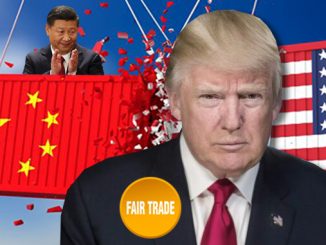
An August financial poll found strong support among American business owners for Trump’s financial policies, including levying additional tariffs on Chinese goods. They reported having a positive outlook on the economy and “feel the administration has had a positive impact on their business overall.”
By Mark Anderson
While the mainstream media continue to wail about how President Donald Trump’s application of tariffs on imports will only incite “trade wars” and could not possibly generate even a single shipping crate’s worth of benefits, an early-August UBS Investor Watch poll says otherwise.
According to the poll, 71% of business owners, from both small and large companies, support levying additional tariffs on Chinese goods. In addition, more than 70% of business owners have a positive one-year outlook on the state of the economy.
As for the poll’s rating of the president, 55% of business owners feel the administration has had a positive impact on their business overall, with 20% reporting a negative impact.
And though you’d never know it by perusing the pulp of The New York Times or The Washington Post:
- 64% of those polled want more tariffs on European goods.
- 66% support more tariffs on imports from Mexico.
- 60% would like to see additional tariffs on Canadian goods.
- Among high net-worth investors, 59% support more tariffs on Chinese goods.
“China is the top concern when it comes to U.S. trading partners, with 88% of business owners [polled] claiming they believe China engages in unfair trade practices with the U.S.,” the “Daily Caller” website, a conservative news outfit, noted on Aug. 2. “Trump has taken a great deal of criticism from lawmakers on both sides of the aisle, who believe his trade policies are protectionist and will hurt long-run economic growth.”

That’s accurate enough, though “unfair trade practices” falls far short of describing the huge trade surplus China enjoys at America’s expense—a deficit on the U.S. side of the ledger that was $375.2 billion in 2017 alone, up from $347 billion in 2016. It could be argued that the tariffs on Chinese goods simply represent “payback time,” given the decades of growing trade deficits, widespread industrial-production losses and plummeting consumer purchasing power the U.S. has been forced to endure under “free trade” agreements written well outside of public view.
When it comes to lawmakers and free trade, partisanship suddenly becomes muted and legislators who can barely agree that water is wet suddenly march in lockstep, screaming about how protectionism should be forbidden, just as tariffs should be forbidden. Why? Because both concepts adversely impact the ruling internationalist establishment—collusive central banks, investment banks, certain law firms and insurance interests, influential tax-exempt think tanks and arm-twisting lobbying firms, the Bilderberg and Trilateral Commission groupings etc.—to which many members of Congress are beholden.
The institutional bias runs deep. This writer recalls in 2011 covering a meeting of the World Bank and International Monetary Fund in Washington. There, a Wall Street Journal reporter hanging around in a food court warned me that using the words “tariff” and “protectionism” too often, or discussing them conceptually and objectively, much less advocating them, was largely taboo within the gilded walls of those institutions.
Since the media is a tool of the trans-nationalist elite who run the above-noted interlocking interests, Americans are hard pressed to get a clear and complete explanation not just about the degree of support for Trump’s tariffs, but also about tariffs themselves.
Tariffs, it is said, raise prices, but so do domestic income and property taxes as tax-related costs are passed off to the end consumer. Better to raise taxes at the water’s edge and make corporations who sought cheap labor overseas pay for the privilege of selling their goods in the U.S. market.
This arrangement, by limiting the sale of imports via import taxes [tariffs], has the added benefit of protecting domestic investments and production within the U.S. That, in turn, fosters a more nationalistic economic outlook, meaning that protectionism deflates the plutocratic, internationalist system. Hence the reason that “protectionism” and “tariffs” are rated as dirty words whenever they’re advocated.
Mark Anderson is AFP’s roving editor.



